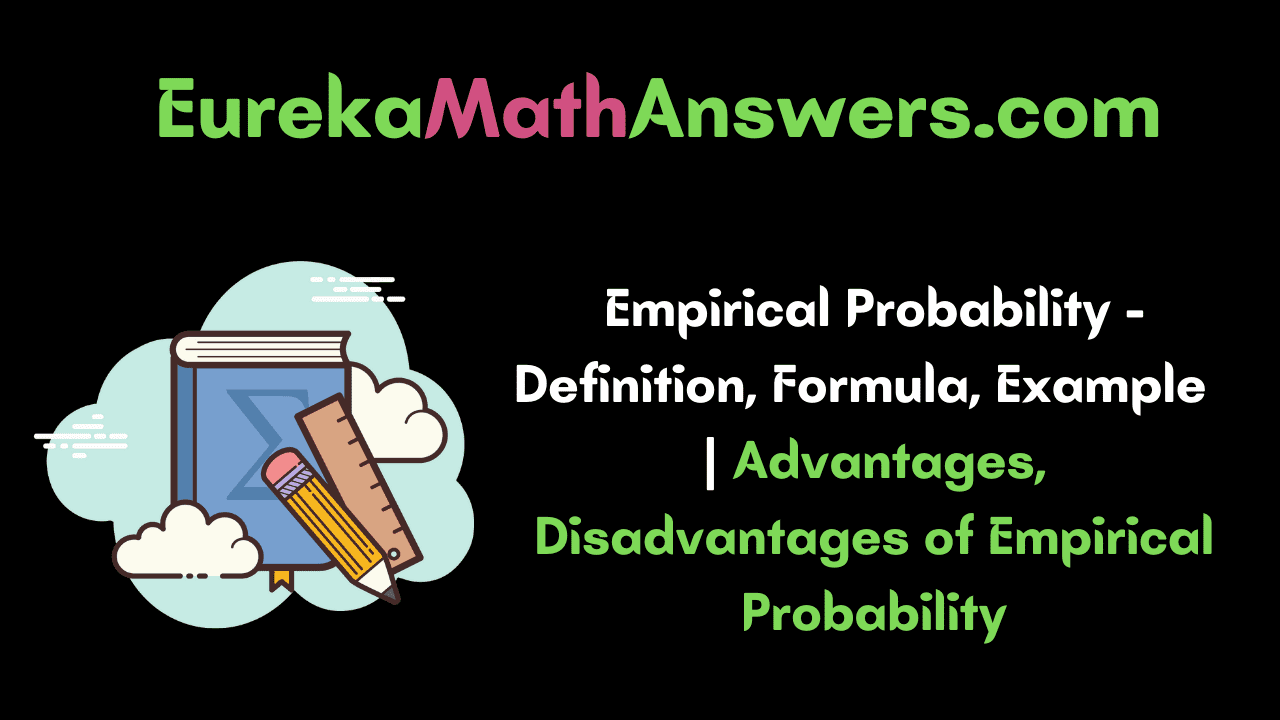The probability is defined as the chance of occurring an event. Probability can be classified as theoretical probability and empirical probability. The empirical probability is based on historical data. Check the definition, formula, pros and pros and cons of empirical probability in the following sections.
What is Empirical Probability?
Empirical probability is defined as the estimator of probability that depends on experiences and observations. Its advantage is the procedure that is considered free of assumptions that means no data is assumed. It is also known as a relative frequency or objective probability. Empirical probability is the number of outcomes in which a specified event occurs to the total number of trials.
More Related Articles:
Empirical Probability Formula
The empirical probability of an event depends on what happened. On the other hand, theoretical probability an event predicts what will happen on the basis of the total number of possible outcomes. Empirical probability is the ratio of the number of trials in which an event occurred to the total number of trials.
The empirical probability of the occurrence of an event E formula is here.
P(E) = \(\frac { Number of trials in which event occurred }{ Total number of trials } \)
Pros and Cons of Empirical Probability
The following are the advantages and disadvantages of empirical probability.
Advantage:
- The empirical probability is used to estimate the probability.
Disadvantages:
- Empirical probability gives results pointing to estimating probabilities that are either very close to 0 or very close to 1.
- It requires large sample sizes to predict probabilities to a fair degree or accuracy.
Solved Problems on Empirical Probability
Problem 1:
In a buffet, 90 out of 100 people chose to order coffee over tea. What is the empirical probability of someone ordering coffee?
Solution:
Given that,
Total number of people = 3
The number of people who choose coffee or tea = 90.
Number of people who choosing coffee or tea = 100 – 90 = 10
As per empirical probability formula, it is = 10 / 100 = 0.10.
Therefore, the empirical probability of someone ordering coffee is 0.10 or 10%.
Problem 2:
A coin toss three times and the result was three heads. Using the empirical probability formula find out what is the empirical probability of getting a head?
Solution:
Given that,
Total number of trials = 3
Number of heads = 3
Empirical probability = 3 / 3 = 1.
Therefore, the empirical probability of getting a head is 1 or 100%.
Frequently Asked Question’s
1. What is an empirical probability example?
Empirical probability is the probability of an experiment that gives the result. An example is tossing a coin 50 times and check how many times you get heads.
2. How to calculate empirical probability?
The formula to find empirical probability is the number of times an event occurs by the total number of trials. Substitute the values in the formula and solve to get the answer.
3. What is the difference between probability and empirical probability?
The main difference between theoretical probability and empirical probability is here. Theoretical probability is based on the assumption that outcomes has an equal chance of occurring while empirical probability is based on the observations of an experiment.
